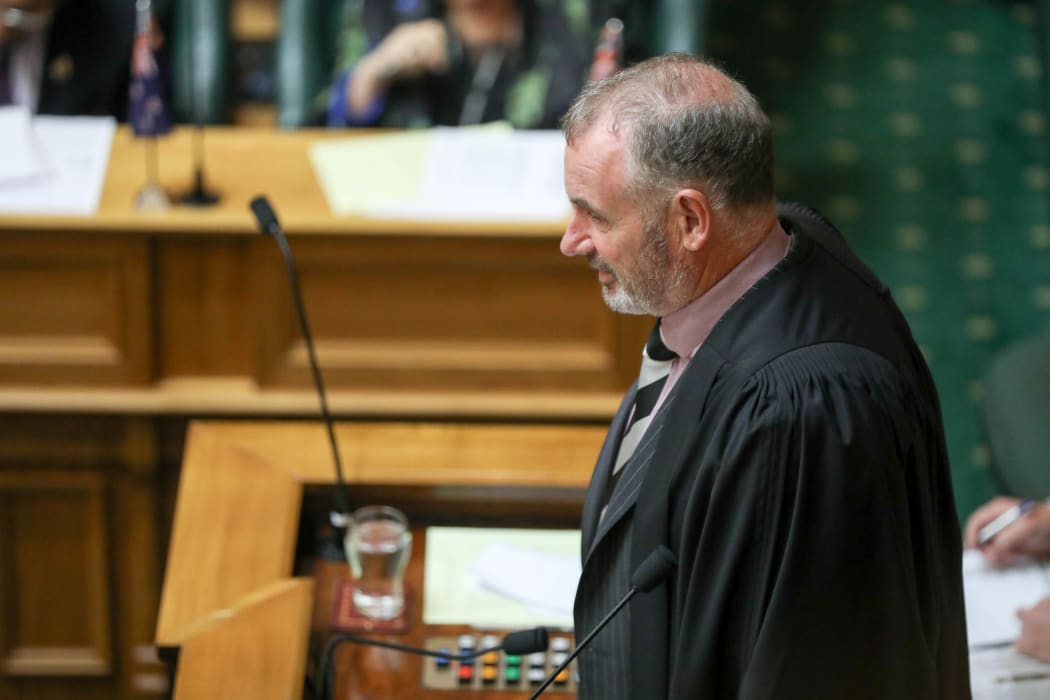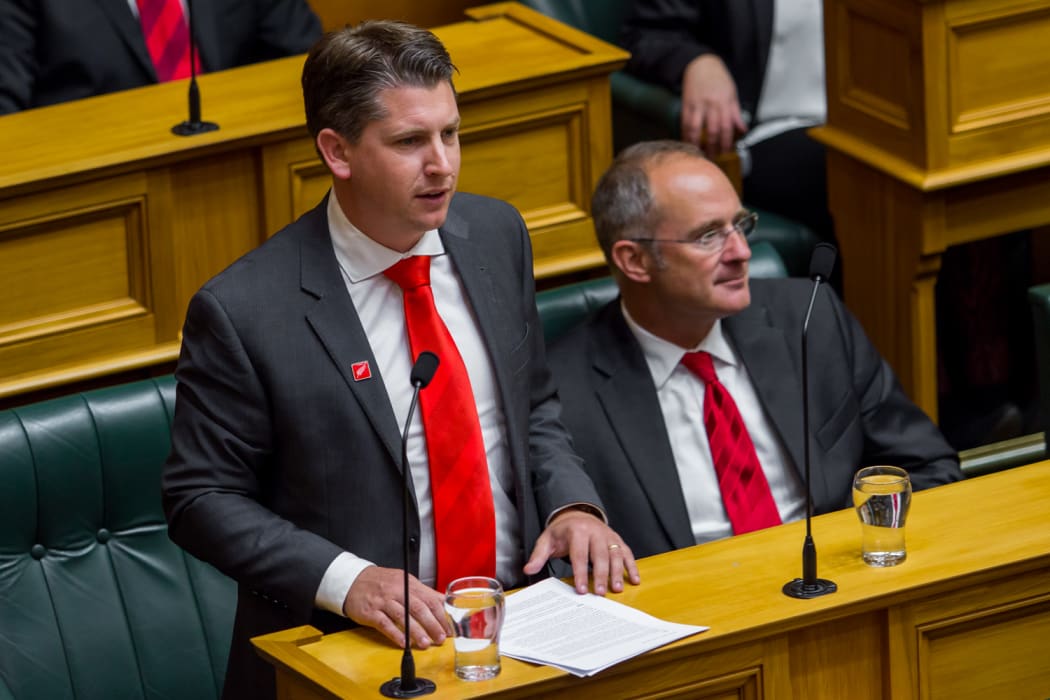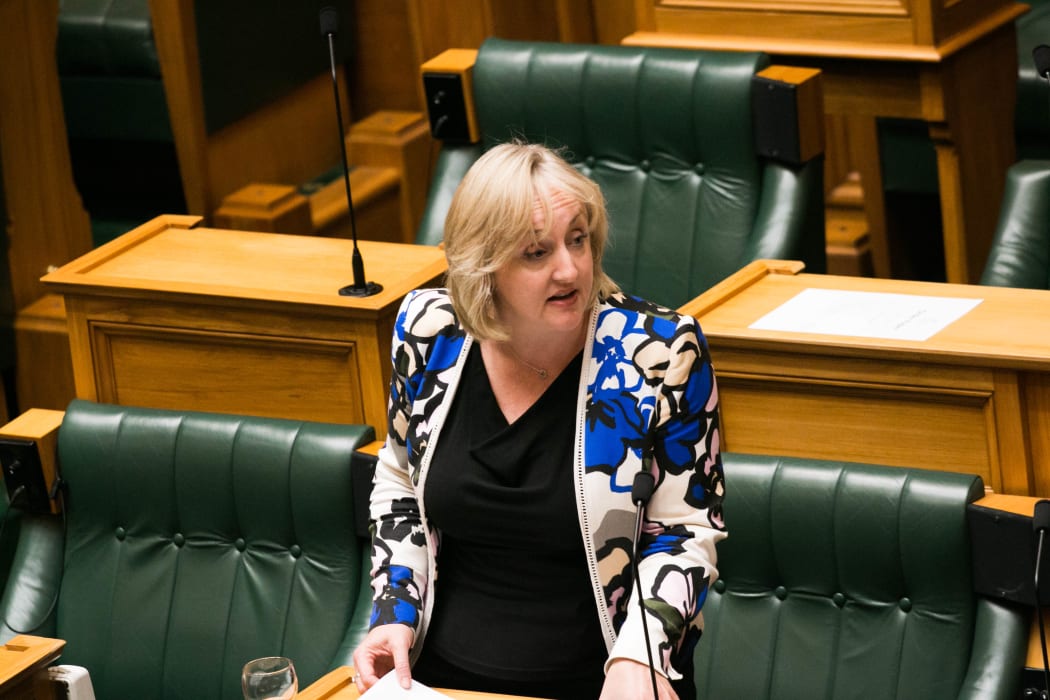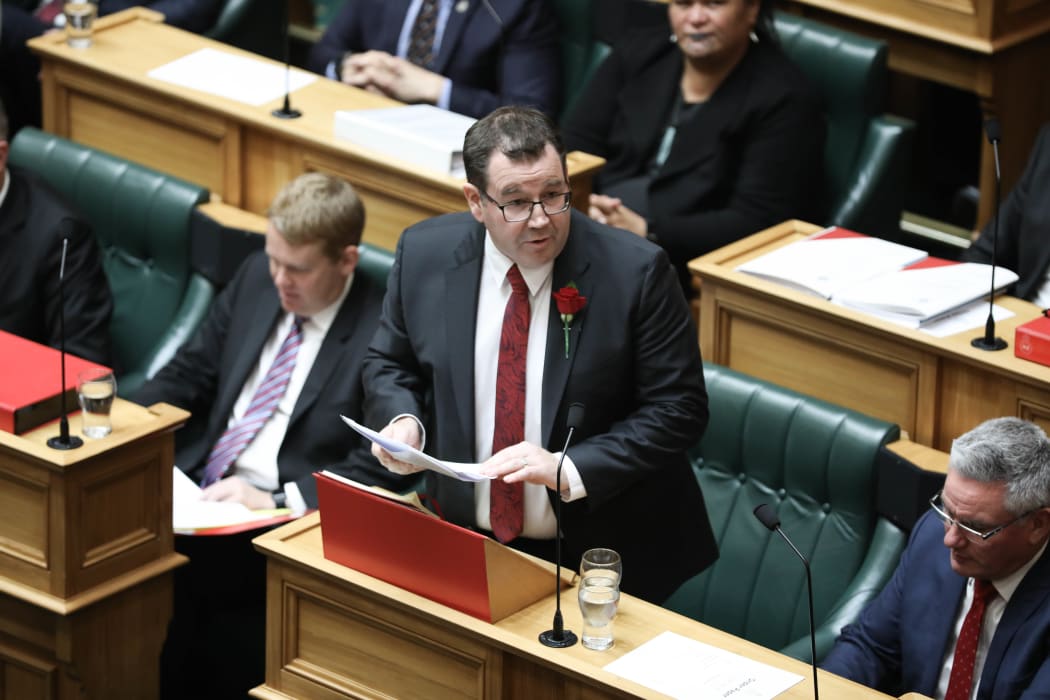The Budget Debate may be all done and dusted but yet another debate on money has taken place in the House, with MPs debating the Treasury’s Investment Statement for the first time.
The Investment Statement analyses the government balance sheet. It’s a stock take of assets like schools, buildings and ACC funds, and also liabilities, like the money which has been borrowed to fund the operations of government. Even potential ones - like a foot and mouth outbreak.

The Speaker of the House Trevor Mallard Photo: VNP / Daniela Maoate-Cox
This year’s statement is the He Puna Hao Pātiki, 2018 Investment Statement: Investing for Wellbeing. As at June last year the statement says the Government owned $314 billion worth of assets and owed $197 billion worth of liabilities.
The first report was published in 2014 to meet a reporting requirement under the Public Finance Act 1989.
The Speaker Trevor Mallard said this is the first time it has been debated in the House.
“This is a tight debate on the assets and liabilities of the Government and the management thereof.”
Technically the MPs are debating a report from the Finance and Expenditure Committee on the Investment Statement so the Chair of that committee, Labour MP Michael Wood, started the debate with these formal words:
“I move, That the House take note of the report of the Finance and Expenditure Committee on He Puna Hao Pātiki 2018 Investment Statement: Investing for Wellbeing.”

Labour MP Michael Wood Photo: Supplied / The Office of the Clerk
MPs are often “moving” things in the House; it’s procedure and has to be said to keep things official.
After that part was done Mr Wood launched into his thoughts on the statement.
“As parliamentarians, it sort of lifts our eyes a little bit from the day to day, week to week, even the annual budget cycle, and asks us questions about how we are actually using the assets and liabilities of the New Zealand Government to ensure that we meet the needs of our fellow New Zealanders and enhance their well-being,” he said.
As is typical in the House, MPs use the available information to support their arguments.

National MP Amy Adams Photo: VNP / Phil Smith
National MP Amy Adams is also on the Finance and Expenditure Committee and said she has “concerns over the direction” the Government is taking the country.
‘Since this Government has been in office, we already see Treasury revising downwards their estimates of GDP per capita growth,” she said.
“It was four percent per annum back in 2016; now, for this year, it's looking to be around 2.8 percent. We were, actually, ahead of Australia for many years.
“Under the global financial crisis, we were regarded as one of the leading lights in the world economy during difficult times. Now we're being seen as a "middle-of-the-pack", a bit of an "also ran", "used-to-be-good".”
It’s not a rule but typically speeches alternate between government and opposition parties.

Minister of Finance Grant Robertson. Photo: VNP / Daniela Maoate-Cox
So following Amy Adams was the Minister of Finance Grant Robertson who naturally took a more positive outlook on the Government’s plan.
“One of the very first things that this Government did was restart Government contributions to the New Zealand Superannuation Fund, because the value of that asset to New Zealanders has diminished as a result of the previous Government deciding that, for nine years, they would put no Government contributions in at all” he said.
The speeches continued over two hours replacing the shorter General Debate which normally takes place on Wednesdays in the House.
The full speeches from the 14 MPs who spoke can be read or watched on the Parliament Website.


